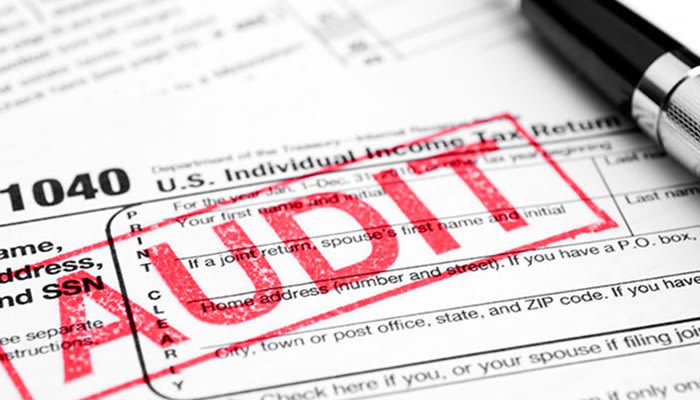
WHAT TO KNOW ABOUT TAX AUDITS
For most taxpayers, the words "tax audit" can produce any number of unpleasant bodily sensations including dryness in the throat, sweaty palms, a racing pulse or hyperventilation. There are probably few word combinations that can have such a profound impact on the average person's anxiety level. The truth is that last year, the Internal Revenue Service (IRS) actually audited less than half of 1% of all tax returns, so why all the fear? Not knowing the factors that can trigger an IRS audit contributes to the high level of fear.
How Random is the Selection?
The large majority of returns selected for audit are done so by computer. The process compares individual returns to statistical averages for similar taxpayers in terms of income, the number of dependents, geographical locale, etc. Discrepancies from the "averages" make up a score called the DIF (Discriminate Function). Typically, returns with the highest 10 percent of DIF scores are chosen for audit reviews.
In addition, there are certain "discrepancies" that are likely to automatically trigger an audit. For example:
The income listed from various sources (e.g., wages, interest, dividends, capital gain transactions) does not match the reporting statements (e.g., W-2, 1099-Int, 1099-B, 1099-R) submitted to the IRS.
An item is reported in an incorrect or unusual place on a return.
Moreover, there are some circumstances that may increase the likelihood of an audit. For example:
Having been audited for a given year increases the chances of subsequent audits.
In any given year, it is common for the IRS to target specific professions and/or deductions for special scrutiny.
All Audits are Not the Same
While the purpose of all audits is to verify sources of income and validate deductions, exemptions and credits, there are four basic types of IRS audits that vary in terms of comprehensiveness.
A correspondence audit takes the form of a request from the IRS asking you to mail back proof of a particular item on your return. The IRS also uses this procedure to make adjustment audits – usually tax increases – based on calculations made by IRS computers. If the taxpayer accepts and pays the assessment notice, these audits usually end here. If the taxpayer believes the assessment is incorrect, the correspondence from the IRS will indicate the appropriate procedure necessary to challenge the notice.
An office audit is a request that you meet with a tax auditor at an IRS office. The notice usually identifies some aspect of your return that is in question, and specifies documentation to bring to the audit.
A field audit is usually a little more onerous. An IRS agent will visit your home or office. In addition to reviewing supporting documentation for certain items on your return, the agent will be trying to get a sense of whether your lifestyle is consistent with your reported income.
Every few years, the IRS randomly selects returns for TCMP (Taxpayer Compliance Measurement Program) audits. During a TCMP audit, every item on the return is checked line by line. The IRS uses data from these audits to identify the extent to which taxpayers are complying with the tax laws.
Know Your Rights
If you receive an audit notice from the IRS, hiring a tax professional to represent you is probably the best strategy. However, should you choose to handle an audit yourself, the Taxpayer Bill of Rights allows you to tape record your meetings with an auditor and to adjourn a meeting with an auditor at any time to either consult with your tax advisor or to request professional representation.
The best way to be prepared for the possibility of a tax audit is to keep well-organized records of your prior years' returns along with complete, supporting documentation. Furthermore, while you may find tax theory a less than exciting subject, it is in your own best interest to try to understand as much of your tax return as possible.
While these steps may not reduce your chances of being audited, they may reduce your anxiety level should the IRS come knocking at your door.
